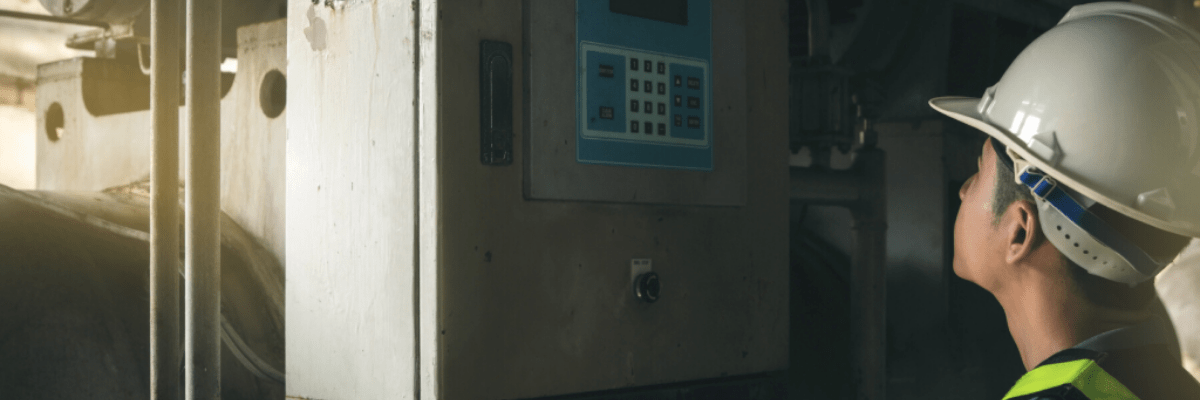If you have spent time on our website, you know about the benefits that come with Refrigeration technician jobs:
- Excellent pay
- Job security
- Debt-free job training (and getting paid while you learn)
- Union benefits and pension
- Interesting and varied work
If you are considering a Refrigeration technician career, those benefits come with a commitment to years of training. Naturally, before signing on you want to know what the day-to-day work is like to make sure it’s a good fit for you.
Here’s your chance to get an inside view of a Refrigeration technician’s typical day.
Refrigeration technician jobs: a typical day
You will start your Refrigeration technician career as a “helper” or apprentice. You’ll work alongside experts and learn on the job while also attending training classes (read more about working as a helper here). Once you gain the skills needed to work independently as a Refrigeration technician, you will be assigned a company vehicle and handle most service calls on your own.
Every Refrigeration service company has different processes and procedures, but here are the common Refrigeration technician duties and tasks you can expect.
Getting Refrigeration service call assignments
Every Refrigeration technician starts his or her day by getting assigned one or more service calls. The number of calls you’ll handle in a given day will vary based on how long it takes to complete them: swapping out a part could take just 30 minutes, whereas a complex repair or install could take the entire day (or multiple days).
Working for a smaller, local service provider, you might stop into the office to get your assignments. At a larger organization (especially one that covers a large service area like the New York City metro area), it’s more common to call your dispatcher or service coordinator to get your assignment. In some cases, you might find out your first assignment the night before, or get the information via email.
Picking up parts and supplies
Once you have your assignment, you need to gather the parts and materials you will need to complete the work.
Your company vehicle carries all your tools and many commonly used parts. However, you need to replace parts and supplies that you use. Also, when you work for a larger company that services many brands and types of systems, you can’t possibly carry every part in the truck. So, most days will include a stop to pick up parts, either at the office, at a supply warehouse, or at another location set by your parts manager.
Getting to the job
Driving is an important aspect of working as a Refrigeration technician that many people don’t think about before entering the field.
You’re going to spend a considerable amount of time behind the wheel. You’re responsible for a company vehicle and you are representing your employer out there on the road. That’s why you will need a clean driving record to get hired for a Refrigeration technician job.
Working in a big, congested city like New York, driving is a challenge, and finding parking can be an even bigger challenge! Patience and your undivided attention are very important.
Another tip: especially if you have to park blocks away from the job, be sure to bring whatever you think you’ll need with you to minimize time-consuming return trips to the truck.
Talking with your customer
Once you arrive at the customer’s location, your first critical task is to check in with the customer.
Even if you already think you know what the problem is (based on information from the dispatcher), it’s always smart to listen carefully to everything the customer can tell you about the equipment and its performance. You’ll pick up clues that can help you diagnose and fix problems faster.
You’ll make the customer happy by getting them up and running quickly, and your employer happy by working efficiently.
Working on complex Refrigeration systems
Working as a Refrigeration technician, there are three types of work you will perform on Refrigeration equipment:
Preventative maintenance. This work involves inspecting equipment condition, testing operation, changing filters, swapping out failing parts, and cleaning components. Chances are you will start out doing this work as an apprentice. However, experienced technicians also do maintenance work, especially for large and complex supermarket and industrial systems.
Diagnosing problems and making repairs. You will use meters and gauges for testing, use your eyes and ears to gather information, and use all the knowledge and experience you have gained throughout your career to figure out what’s wrong. For more modern equipment, you might also use a laptop to connect to the system and look for diagnostic error codes.
Completing the repair might mean replacing parts and other mechanical work, doing electrical work, or programming electronic controls.
Whenever possible, you want to make the repair as quickly as possible, because for every hour the refrigeration system is down, your customer is losing money. Sometimes, however, the repair might require a part you don’t have. Or, the system might need additional work that will need to be scheduled for a later date. It’s important to always keep your customer informed about your progress and let them know what to expect.
Installations. For a new store or restaurant, you might be assigned to install a brand new systems or a single piece of equipment. Or, you might need to replace an existing system that’s reached the end of its life. For a larger installation, you will likely work with an installation team.
Another tip: If you need to grab something from the truck, take back something you don’t need anymore. That can cut your clean-up time significantly at the end of the job!
Wrapping up the job
As we mentioned earlier, the first thing to do when you complete a job is to give a report to your customer. You will need to explain any problems you found, and what you did to correct them, using terms that your customer can understand. Even better: show them what you fixed if the equipment is accessible. And be sure to answer any questions the customer has.
If additional work is needed, be clear about when the customer can expect a proposal, or when you will return to complete a job in progress.
The customer service component of a Refrigeration technician’s job is just as important as your technical work on the equipment. You must have the ability to explain things in simple terms. You need to show empathy and respect. And, you must demonstrate confidence so your customers will trust your ability to solve their problem.
Once you’re done talking with the customer, you will document the details of the service call in a written report or job ticket. For most modern Refrigeration service providers, that means using paperless systems on a handheld device, laptop, or smartphone. That information generates a work order and invoice that gets emailed the customer. It gets added to your company’s service records for that customer, and it gets used to order any replacement parts.
At this point, you’re ready to move on to your next scheduled job, contact your dispatcher if you need a new assignment, or wrap up the day if it’s quitting time.
Less frequent tasks to know about
Being on call for emergencies
As we mentioned, when customers need Refrigeration service, they need it in a hurry. So, every Refrigeration technician job includes being on call for emergency service on some nights and weekends. Typically, you will rotate on-call responsibility with other members of your team.
Team meetings
Larger employers often have teams of Refrigeration technicians that service different zones within the company’s service area. That means each team takes care of the same customers. Your company might ask you to attend a weekly team meeting where you’ll share information about customers and jobs in progress with your colleagues.
Ongoing training
IMPORTANT: a Refrigeration technician is never done learning!
Even with decades of experience, you will find that there is always something new to learn. New technology is introduced, new tools make the work faster, and manufacturers invent new models and even new types of systems. So, expect to attend classes at your company’s office and at manufacturers’ plants getting trained on how to work with new equipment.
Is a Refrigeration technician job right for you?
Can you see yourself working as a Refrigeration technician? Check out more resources that can help you get started.

Thanks to Antonio Marte of Arista Air Conditioning and Kurt Woods of AAA Refrigeration Service for providing the details for this article.
